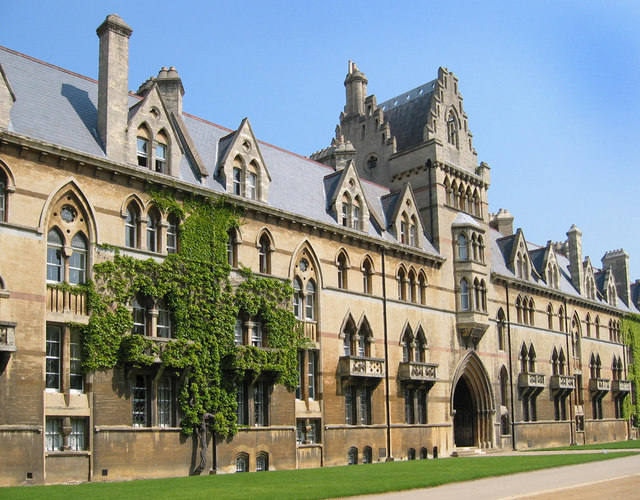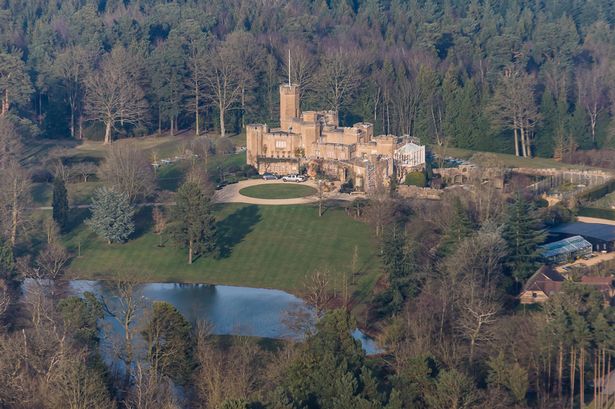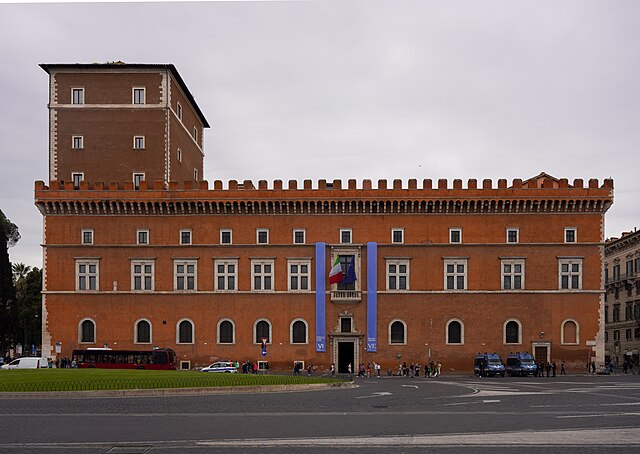252 (265) the hanging
i.e. of the pictures in the gallery, always a fraught period.
253 (265) Lord Copper … Daily Beast
This newspaper makes a number of appearances in EW’s novels, as does its hands-on proprietor Lord Copper.
Perhaps the most famous of EW quotations occurs in Scoop in relation to him : his minions dare not tell
Copper that he is wrong and instead use the phrase ‘Up to a point, Lord Copper’. So Yokohama is up to a
point the capital of Japan.
253 (266) “Brideshead set” … a nest of party mutiny
The middle to late 30’s was a period of some frustration for many Conservatives. Quite apart from those few
who clustered around Winston Churchill in fear of the growing might of Nazi Germany, there were three other
disaffected groups : those who did not approve of the national government though it was dominated by the
Conservative party; a few liberal Conservatives who regretted the lack of a generous social policy; and
rather more who had some admiration for the apparent successes of Nazism and Fascism in Europe.
The mention of the ‘Brideshead set’ recalls the tendency of disaffected politicians in the 1930’s, a time when one party had a firm grip on power, to form cabals which took their name from a place where they met, e.g. the Cliveden set.
253 (266) Teresa Marchmain
i.e. Lady Marchmain, who has been dead about ten years.
253 (266) The Clarences
In the 20th century there was no royal family called Clarence. (The last Duke of Clarence, who would have
become king in 1910 if he had survived, died in 1892.) There has been some speculation as to which royal
duke EW means this to be. It is of no importance : the point is that we witness the pleasant
inconsequentialities attendant on royal position in the 20th century.
253 (266) “human story”
Even then a concern which newspaper reporters placed above truth, as can be seen in the paragraph that
appears the following morning : the reporter writes that Charles went to ‘equatorial Africa’.
254 (267) Margot
Almost certainly a reference to Margot Metroland (previously Margot Beste-Chetwynde, pronounced “Beast
Cheatin’”), another character who appears in several of EW’s novels from Decline and Fall onwards. She is an
ornament of high society despite deriving her fortune from dubious activities including the white slave
trade.
255 (267) Mrs Simpson
i.e. Wallis Warfield Simpson, the inamorata of the King, Edward VIII. This is the summer of 1936 when the
affair was building up to a great constitutional crisis. Mrs Simpson was an American who was in the process
of being divorced from her second husband in order, it was suspected, to marry the King as her third. The
King was adamant about marrying her, the establishment determined he should not do so as king. Quite apart
from the appalling prospect of admitting an American divorcée to the throne, there was the fact that the
King was head of the Church of England, a body which does not easily countenance remarriage of divorced
people. The King’s supporters floated the idea of a morganatic marriage, but the Cabinet was unwilling to
accept this compromise since there was no provision for it in the constitution : the King’s wife must be
Queen. On 11th December 1936 the king abdicated in favour of his brother, the Duke of York, who became
George VI. Edward received the title Duke of Windsor, married Mrs Simpson in June 1937, and lived abroad.
The recent waves caused by the marriage of Mrs Camilla Parker-Bowles to the Prince of Wales (2005) show that the British constitution is a robust and malleable organism. A little willingness is all that is necessary to get things changed. To mollify a section of British people perceived to be devoted to the memory of the late Princess of Wales, Mrs Parker-Bowles stated her preference for the title Duchess of Cornwall (the Prince's second title is Duke of Cornwall). She also wishes to have the title Princess Consort when and if her husband becomes king. Such arrangements could have been created for Mrs Simpson too, though in her time the political and religious opposition was very strong indeed. Of course constitutional experts are arguing now about whether the Duchess of Cornwall is in fact the Princess of Wales, whatever she calls herself, and so will be Queen de jure and de facto.
255 (268) Tate Gallery and the National Art Collections Fund [The Am. Ed. also lists
the Chantrey Bequest]
Important purchasers in the arts world in Britain who had access to large amounts of money. Actually the
Chantrey Bequest gave money to galleries to buy paintings and did not purchase them itself, so EW removed it
from the list in his revised edition.
257 (269) T-t-trent or T-t-tring
Trent Park was the name of the large estate of the extremely rich Member of Parliament Sir Philip Sassoon
(1888-1939), cousin of the poet Siegfried. It lay on the edge of North London. Sir Philip liked to keep
exotic wildlife like muntjak, penguins and flamingoes, and he certainly had extensive conservatories and
hothouses where tropical greenery was abundant. Today Trent Park is a campus of the University of Middlesex.
Tring is a dormitory town in Hertfordshire, a bastion of the middle class. It possessed a fashionable health farm which many of EW’s friends patronised, in fact the first one established in Britain, in 1925. It appears that the owners attempted to make up for exiguous cuisine by excessive decor.
257 (270) louche
i.e. shady, disreputable
257 (270) Blue Grotto Club
As Anthony Blanche explains, there were many such clubs opening and closing in London all the time.
Parliament had imposed strict licensing laws, and the Home Office and the police had periodic fits of
puritanism which resulted in clubs being forcefully closed down. The answer for the owners was simply to
open them again under a new name.
257 (270) Boeuf sur le Toit
A nightclub in Paris. In 1920 Darius Milhaud (1892-1974) had written a ballet called Le
boeuf sur le toit (The Ox on the Roof), a title which he had taken from a Brazilian popular
song. The music was full of exotic rhythms and orchestration, though the success of the venture was ensured
by Jean Cocteau’s organisational skills and his scenario, which sets the scene in New York among varied
low-life characters. A club opening up soon afterwards cashed in on the acclaim by using the title for its
name; it soon became a centre of literary and artistic activity, and especially of jazz-playing. Jazz
musicians who played in other Parisian venues often went to Le Boeuf sur le Toit to have a jam
session after they had finished their gigs. To this day, to have a jam session in France is called faire
le Boeuf or taper le Boeuf.
[Ed. Note: The following annotation does not appear in Cliffe's original.]
B-b-bratt's
Donald Greene identifies "Bratt's" as "No doubt Pratt’s Club, founded 1841, on Park Place, just
off St James’s Street."
258 (271) cobalt
a deep blue
258 (271) Ruskin-Gothic
The kind of Venetian Gothic favoured by John Ruskin. Charles is remembering looking out over Christ Church
Meadow from Sebastian’s rooms in Meadow Buildings, which were designed in that style. Christ Church Meadow
is a justly celebrated expanse of parkland.

259 (272) not Jane Austen
Perhaps the writer considered to be the most English in her writings and attitudes. Modern criticism and
films have, however, discovered previously unsuspected depths of perverse and revolutionary longings and
obscenity.
259 (272) not M-m-miss M-m-mitford
i.e. Mary Russell Mitford (1787-1855), the author of Our Village
(1824), a series of sketches of English rural life which preserve a long-departed mode of living. Certainly
Blanche would bracket her with Jane Austen as being ornaments of prim English propriety, however undeserved
that categorisation might be.
259 (272) d-d-dago
An insulting term for a person of Hispanic descent (it is an English rendering of the common Spanish name
Diego) which Blanche turns to comic use to express a contrast between himself and Charles.
259 (272) Gauguin
Paul Gauguin (1848-1903), French artist famous for his paintings with flat perspectives and striking
colours. In 1891 he went to live in the simpler societies of the Pacific where he perfected his art.

259 (272) Rimbaud
Arthur Rimbaud (1854-1891), French symbolist poet of immense significance (even though he did not write any
poetry after the age of 19) who also escaped from France. He resided in several countries but mainly in
Africa.
260 (273) pansy bar
i.e. a bar that caters for homosexuals considered effeminate. In Britain such men have been nicknamed
pansies since at least the 1920’s.
262 (275) ‘Of course, he can marry her …’
The King and Mrs Simpson
262 (275) ‘We had our chance in October … Mare Nostrum … Spezia … Pantelleria’
This is a reference to the Anglo-Italian crisis of 1935 which accompanied Italy’s invasion of Ethiopia, then
called Abyssinia. The League of Nations, urged on by Britain, imposed sanctions on Italy; but these
sanctions were so ineptly applied that they did nothing to stop the invasion. The inevitable victory of
Italy followed; the Emperor of Abyssinia, Haile Selassie, was forced into exile for five years until the
British captured the country during World War II.
EW blamed the policy of the British government for ensuring maximum suffering, firstly by giving false hope to Abyssinia, and secondly by fostering a sense of betrayal in Italy, a country which up to that point had considered itself a friend of Britain’s.
‘Mare Nostrum’ means Our Sea and was a favourite phrase both of ancient Romans and modern Italians for the Mediterranean Sea. La Spezia is the city housing the chief Italian naval base. It consists of an immense natural harbour and lies midway between Genoa and Leghorn. Pantelleria is an Italian island in the Mediterranean Sea north-west of Malta.
262 (275) ‘Franco’s simply a German agent … That bluff has been called, anyway.’
A reference to the Spanish Civil War. Francisco Franco (1892-1975) was the general in charge of the
Nationalist (Fascist) forces, and soon to become the ruler of all Spain. He had built up his forces in
Morocco and then invaded Spain. Franco had not-so-clandestine German (and Italian) support. Quite how the
Germans’ bluff had been called is not clear. They certainly continued helping Franco until the end of the
civil war.
262 (275) ‘It would make the monarchy stronger …’
This delusion refers to the marriage of Edward VIII and Mrs Simpson.
262 (275) show-down with the old gang
The ‘old gang’ here refers to the leaders who took a more conventional moral view of the King’s case than
did the King and his supporters. Rex’s friends are over-estimating the power and support that the King had
in the country. His self-serving, idle and slovenly ways had not recommended him to the establishment, and
the country as a whole, as things turned out, did not appreciate a man who would neglect and then cast aside
his duty for a woman.
262 (275) Why didn’t we close the canal?
i.e. the Suez Canal, in order to make difficult the passage of Italian troops to Abyssinia.
262 (275) Fort Belvedere
King Edward’s own home near Windsor. He preferred it to Buckingham Palace, Windsor Castle and Sandringham
even when he was king.

262 (275) Palazzo Venezia
Originally a Renaissance palace, it was built in 1445 on the Via del Corso in Rome by the Venetian pope Paul
II when he was a cardinal (Pietro Barbo, 1417-1471, pope from 1464). Thereafter its joint residents were
always a Venetian cardinal and the Venetian ambassador. Mussolini, the Italian Fascist dictator, took the
palace over as his headquarters and liked to address the crowds from the balcony. The palace is now an art
museum.

262 (275) Baldwin
The Prime Minister at the time, Stanley Baldwin (1867-1947), who, as his last great service for the country
before he resigned in 1937, was busy trying to get the king either to reject Mrs Simpson or to abdicate.
262 (276) Clive and Nelson
Two great British heroes. Robert, Baron Clive of Plassey (1725-1774) was a soldier and colonial
administrator who helped to establish British rule in India. Horatio, Viscount Nelson (1758-1805) was the
admiral who defeated the Spanish and French fleets at the Battle of Trafalgar though he himself was killed
during the battle.
262 (276) Hawkins and Drake
Two English pirates honoured for their successes in wars, legal or otherwise, against Spain, especially in
the struggle against the Armada (1588). Sir John Hawkins (1532-1595) was initially a slave-trader but as a
member of the government later helped to reform England’s navy. Sir Francis Drake (1540?-1596) was the first
English commander (and only the second of any nationality after Ferdinand Magellan [recte Fernão de
Magalhães] and Juan Sebastian Del Cano in 1519-1522) to circumnavigate the globe. Both Englishmen served in
the fleet which followed the Armada (Hawkins was second-in-command and Drake third) and both died on a
plundering expedition to Spanish America.
263 (276) Palmerston
This odd choice of hero attests to the speaker’s wish for bold and independent foreign policy. Henry John
Temple, Viscount Palmerston (1784-1865), nicknamed ‘Pam’, was for fifteen years Foreign Secretary and for
nine years Prime Minister (1855-1858; 1859-1865). He was noted for his robust defence of British interests.